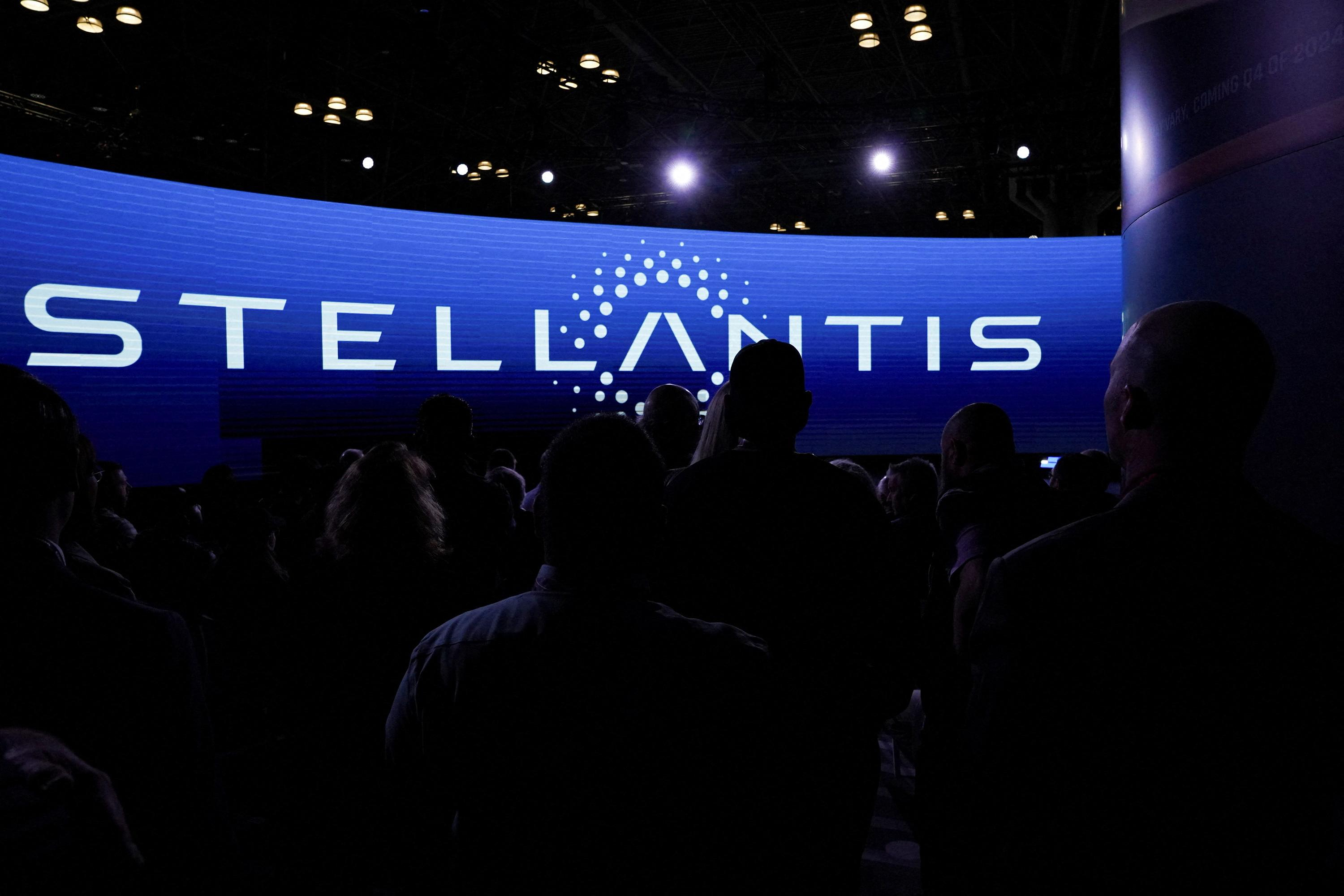Is sodium the future of electric batteries? The Stellantis group's venture capital fund has just announced its entry into the capital of Tiamat, a French start-up which focuses on sodium-ion battery chemistry. Stellantis is seeking to diversify its supply of electric batteries by focusing on innovative chemistries. However, those of Tiamat have the immense advantage of doing without lithium and cobalt. The company created in 2017 by researchers is a “spin-off” of the CNRS and the CEA (Atomic Energy and Alternative Energies Commission).
After years of research and development, Tiamat is now raising funds to build a factory in Hauts-de-France which will ultimately produce 5 GWh of battery cells per year. The total amount of the project is 500 million euros. But the company will start by building a first tranche of 0.7 GWh which will require an investment of 150 million euros. “A third of this amount will be made up of equity, a third of debts to banks and the BPI and a third of subsidies promised by France 2030 and Hauts-de-France,” explains Hervé Beuffe, the general director of Tiamat. The amount of Stellantis' investment has not been disclosed. But it will not allow him to become the company's largest shareholder, specifies the boss of the start-up.
Tiamat does not start from scratch. It has already installed the first generation cells in DIY devices designed by Leroy Merlin. Hervé Beuffe proudly shows the packaging of an electric screwdriver equipped with a cell manufactured in Amiens. “This is the first application of sodium-ion technology,” he explains.
Also readAt the Battery School, with future electric motor pros
Tiamat is not yet into vehicle batteries. Ultimately, Tiamat and Stellantis hope that sodium-ion batteries can replace LFP (lithium iron phosphate) for entry-level vehicles. The cost savings could make it possible to market more accessible small vehicles. But technically, these sodium batteries would have the disadvantage of providing less autonomy. “On the other hand, they would recharge faster than LFPs,” summarizes Pierre Maucaudière, the Battery System Senior Fellow, “Master Expert”, of Stellantis.
Tiamat plans to build the factory at the end of the year and start production at the end of 2025. The factory would reach full capacity in 2029. Tiamat is not the only company to believe in the future of the sodium battery -ion. Several Chinese companies claim that they are already running prototypes of batteries of this type without giving any indication of their competitiveness.
For its part, Stellantis has invested in the development of alternative technologies to current NMC (nickel manganese cobalt) and LFP chemistries for energy storage: solid-state batteries with Factorial Energy and lithium-sulfur chemistry with Lyten Inc. By 2030, the group plans to reach 100% of sales of battery electric vehicles (BEV) in Europe and 50% for passenger cars and light commercial vehicles in the United States. To achieve these objectives, Stellantis must secure battery capacity of around 400 GWh per year.

 What is chloropicrin, the chemical agent that Washington accuses Moscow of using in Ukraine?
What is chloropicrin, the chemical agent that Washington accuses Moscow of using in Ukraine? Poland, big winner of European enlargement
Poland, big winner of European enlargement In Israel, step-by-step negotiations for a ceasefire in the Gaza Strip
In Israel, step-by-step negotiations for a ceasefire in the Gaza Strip BBVA ADRs fall almost 2% on Wall Street
BBVA ADRs fall almost 2% on Wall Street Children born thanks to PMA do not have more cancers than others
Children born thanks to PMA do not have more cancers than others Breast cancer: less than one in two French women follow screening recommendations
Breast cancer: less than one in two French women follow screening recommendations “Dazzling” symptoms, 5,000 deaths per year, non-existent vaccine... What is Lassa fever, a case of which has been identified in Île-de-France?
“Dazzling” symptoms, 5,000 deaths per year, non-existent vaccine... What is Lassa fever, a case of which has been identified in Île-de-France? Sánchez cancels his agenda and considers resigning: "I need to stop and reflect"
Sánchez cancels his agenda and considers resigning: "I need to stop and reflect" “Amazon product tester”: the gendarmerie warns of this new kind of scam
“Amazon product tester”: the gendarmerie warns of this new kind of scam “Unjustified allegations”, “promotion of illicit products”… Half of the influencers controlled in 2023 caught by fraud repression
“Unjustified allegations”, “promotion of illicit products”… Half of the influencers controlled in 2023 caught by fraud repression Extension of the RER E: Gabriel Attal welcomes a “popular” ecology project
Extension of the RER E: Gabriel Attal welcomes a “popular” ecology project WeWork will close 8 of its 20 shared offices in France
WeWork will close 8 of its 20 shared offices in France “We were robbed of this dignity”: Paul Auster’s wife denounces the betrayal of a family friend
“We were robbed of this dignity”: Paul Auster’s wife denounces the betrayal of a family friend A masterclass for parents to fill in their gaps before Taylor Swift concerts
A masterclass for parents to fill in their gaps before Taylor Swift concerts Jean Reno publishes his first novel Emma on May 16
Jean Reno publishes his first novel Emma on May 16 Cannes Film Festival: Meryl Streep awarded an honorary Palme d’Or
Cannes Film Festival: Meryl Streep awarded an honorary Palme d’Or Omoda 7, another Chinese car that could be manufactured in Spain
Omoda 7, another Chinese car that could be manufactured in Spain BYD chooses CA Auto Bank as financial partner in Spain
BYD chooses CA Auto Bank as financial partner in Spain Tesla and Baidu sign key agreement to boost development of autonomous driving
Tesla and Baidu sign key agreement to boost development of autonomous driving Skoda Kodiaq 2024: a 'beast' plug-in hybrid SUV
Skoda Kodiaq 2024: a 'beast' plug-in hybrid SUV The home mortgage firm rises 3.8% in February and the average interest moderates to 3.33%
The home mortgage firm rises 3.8% in February and the average interest moderates to 3.33% This is how housing prices have changed in Spain in the last decade
This is how housing prices have changed in Spain in the last decade The home mortgage firm drops 10% in January and interest soars to 3.46%
The home mortgage firm drops 10% in January and interest soars to 3.46% The jewel of the Rocío de Nagüeles urbanization: a dream villa in Marbella
The jewel of the Rocío de Nagüeles urbanization: a dream villa in Marbella Europeans: a senior official on the National Rally list
Europeans: a senior official on the National Rally list Blockade of Sciences Po: the right denounces a “drift”, the government charges the rebels
Blockade of Sciences Po: the right denounces a “drift”, the government charges the rebels Even on a mission for NATO, the Charles-de-Gaulle remains under French control, Lecornu responds to Mélenchon
Even on a mission for NATO, the Charles-de-Gaulle remains under French control, Lecornu responds to Mélenchon “Deadly Europe”, “economic decline”, immigration… What to remember from Emmanuel Macron’s speech at the Sorbonne
“Deadly Europe”, “economic decline”, immigration… What to remember from Emmanuel Macron’s speech at the Sorbonne These French cities that will boycott the World Cup in Qatar
These French cities that will boycott the World Cup in Qatar Champions Cup: Toulouse with Flament and Kinghorn against Harlequins, Ramos replacing
Champions Cup: Toulouse with Flament and Kinghorn against Harlequins, Ramos replacing Tennis: still injured in the arm, Alcaraz withdraws from the Masters 1000 in Rome
Tennis: still injured in the arm, Alcaraz withdraws from the Masters 1000 in Rome Sailing: “Like a house that threatens to collapse”, Clarisse Crémer exhausted and in tears aboard her damaged boat
Sailing: “Like a house that threatens to collapse”, Clarisse Crémer exhausted and in tears aboard her damaged boat NBA: Patrick Beverley loses his temper and throws balls at Pacers fans
NBA: Patrick Beverley loses his temper and throws balls at Pacers fans


















